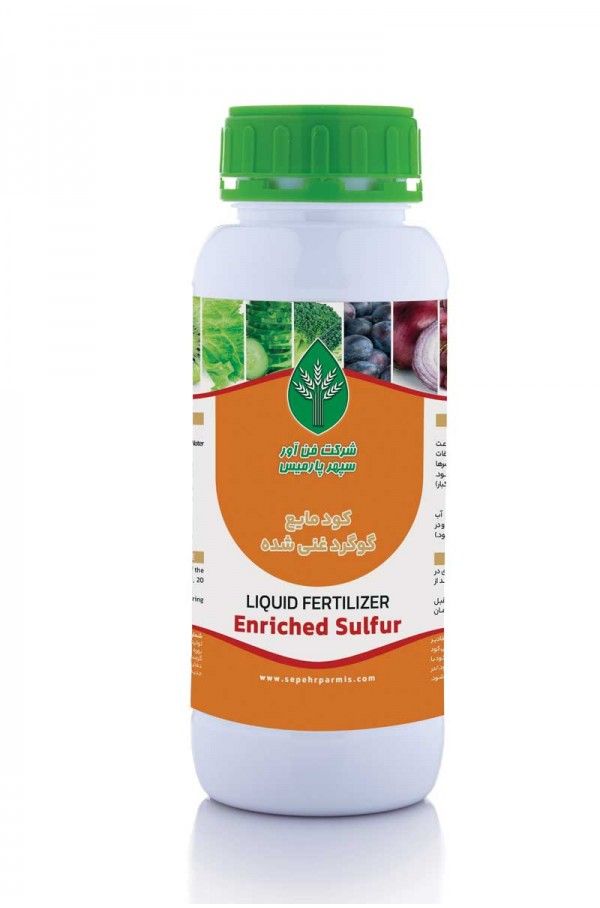
Liquid Zinc Fertilizer

Liquid Enriched Sulfur Fertilizer is known for its unique capability, which is doing the pesticide work beside being a fertilizer, it contains the macro element (high consumption) of Sulfur, one of the important nutrients in plants, which is enriched with Potassium element to improve its effectiveness. This fertilizer treats the lack of Sulfur element in plants with high absorption power, which is effective in the production of Amino Acids, Vitamins and Protein synthesis. On the other hand, it has fungicidal properties to fight and prevent diseases such as controlling powdery mildew, mites, thrips and other fungal diseases in plants. Liquid Enriched Sulfur Fertilizer controls the acidity (correcting pH) and improves the quality of saline and alkaline soils and helps absorbing other elements and is effective in increasing the quality of agricultural products. This fertilizer is safe and easy to use, it dissolves easily in water and can be used in all types of irrigation systems.
Ingredients (w/v) :
Soluble Sulfur 18%, K 14%
Foliar & Irrigation
2-3 Liters in 1000 liters of water
8-16 Liters per Hectare
All Plant Growth Stages except Flowering Time
Sulfur is one of the secondary macro nutritional elements that plays an important role in plants. This element plays a role in the structure of amino acids of proteins and is important in the formation of chlorophyll and oil synthesis in oilseeds. The sulfur element has an important role in increasing the resistance of plants to stresses and pests and has a therapeutic effect against the occurrence and spread of fungal diseases. Sulfur in soil reduces acidity and controls pH and is effective in improving soil quality, and for this reason, it can increase the absorption of other elements. This element plays a role in nitrogen metabolism and helps to compensate for the lack of nitrogen in the soil and causes better plant growth.
The symptoms of sulfur deficiency in plants usually spreads over time and can be observed more in soils that lack organic matter. One of the severe factors of Sulfur deficiency is the reduction of beneficial soil bacteria and low soil moisture. In most cases, the Sulfur element is a non-mobile element, and the symptoms of its deficiency are first observed in younger or upper leaves. As a result, the plant turns pale green and yellow and the veins also turn yellow, and subsequently the growth of the plant and leaves decreases. Sulfur deficiency is almost similar to nitrogen deficiency; the only difference is that sulfur symptoms appear in younger leaves.
So in short, the most significant symptom of sulfur deficiency is paleness of veins, reduction of plant growth and the number of leaves, and occurrence of yellowness without point burn.
Related Products